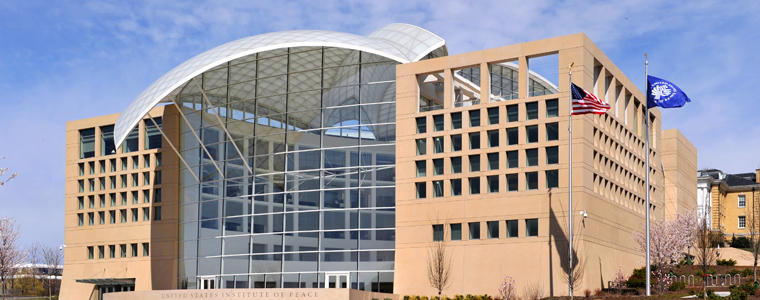USIP, PSA Commence Congressional Briefing Series
The U.S. Institute of Peace (USIP) and the non-profit Partnership for a Secure America (PSA) on September 27 held the first meeting in their “Congressional Briefing Series--Topics on International Conflict Resolution and Prevention.”

The U.S. Institute of Peace (USIP) and the non-profit Partnership for a Secure America (PSA) on September 27 held the first meeting in their “Congressional Briefing Series--Topics on International Conflict Resolution and Prevention.”
The educational, off-the-record briefings are designed to provide opportunities for congressional staff to engage with leading experts and fellow Capitol Hill staffers in bipartisan forums. The program aims to equip staff with new perspectives on critical issues in the international conflict resolution and prevention field, encourage bipartisan dialogue and build cross-party relationships.
The first briefing featured Andrew Wilder, USIP’s director of Afghanistan and Pakistan programs, and David Kilcullen, a counterinsurgency expert who advised Gen. David Petraeus in Iraq and Afghanistan and is now president of Caerus Associates. The well-attended event prompted a substantive discussion.
USIP, the independent, nonpartisan conflict management center created by Congress, runs a range of conflict-management and peacebuilding programs in Afghanistan. PSA is a nonprofit organization founded by former Rep. Lee Hamilton and former Sen. Warren Rudman to advance bipartisanship on critical national security and foreign policy issues.



